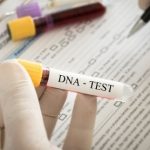Using samples of powder bone from three separate Neanderthal bones, a global team of scientists which includes Svante Pääbo, Richard E. Green, and Hernán Burbano has sequenced the Neanderthal genome. The team compared the Neanderthal genome with the genomes of five present-day humans, and uncovered a variety of genes that are unique to humans, including a handful that spread rapidly among our species after humans and Neanderthals split from a common ancestor. These significant findings may, in fact, hold the key to understanding our human identity. Science has published a more complete report both online, and in the May 7 print edition.
The research also suggests that modern humans and Neanderthals most likely engaged in limited interbreeding, ant that this most likely occurred as modern humans encountered Neanderthals after leaving Africa.For more about this groundbreaking Neanderthal research, including analysis, author interviews, podcasts, and a companion paper presenting new sequencing techniques used in this research, visit Science.




